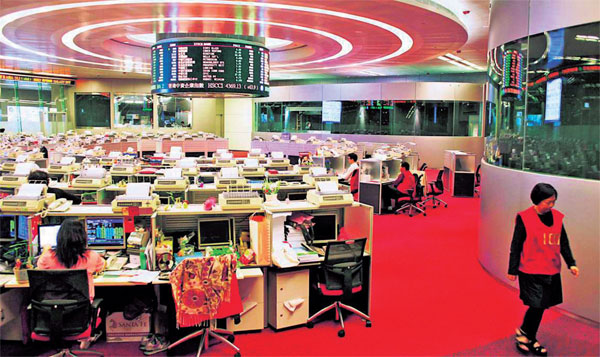Backdoor listings ban is a step in the right direction
Updated: 2016-05-30 07:10
By Peter Liang(HK Edition)
|
|||||||||
|
The stock exchange of Hong Kong has put an end to a clearly unhealthy development that could have tarnished the reputation of the city's capital market. |
The Hong Kong stock exchange has been widely praised for banning backdoor listings as a precaution against potential abuse.
In doing so, it may have blocked some worthwhile enterprises, especially those in the technology sector, from gaining access to the capital market at a time when it is in a downtrend.
The strong demand for shell companies, as reflected in their share prices, for the purpose of backdoor listings had obviously alarmed the exchange. The abnormal phenomenon demonstrated to regulators that many enterprises that would not otherwise have qualified for a public listing under the existing rules had succeeded in doing so through reverse takeovers of shell companies they had acquired.
There are, of course, other reasons for firms to pick this route to secure a public listing of shares. A reverse takeover is the only option open to a company seeking a listing when the market, for any reason, suddenly turns bearish, prompting underwriters to withdraw their support.
Tech companies that don't have a track record to qualify for a listing may also opt for a reverse takeover to gain access to the capital market for development funds.
In mature markets, backdoor listings are not uncommon. Backdoor-listed companies will still have to comply with the disclosure requirements and regulations that apply to all listed companies.
Hong Kong has not taken a stand against reverse takeovers in principle. It has just made it extremely hard for those so-called "shell planters" to profit from listing for the sole purpose of selling their companies in reverse takeover transactions.
Rampant speculation in shell companies had reached feverish pitch in recent months.
In one particularly absurd case, the initial public offering of a company was oversubscribed more than 2,000 times simply because speculators believed that it would be sold as a shell company at a high premium due to expected strong demand.
This was clearly an unhealthy development that could tarnish the reputation of Hong Kong's capital market. For that reason, the stock exchange appears to have made the right move.
(HK Edition 05/30/2016 page8)
